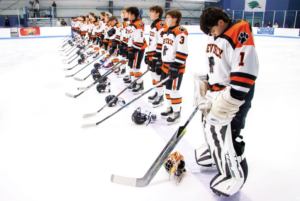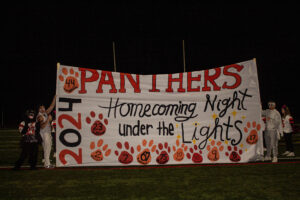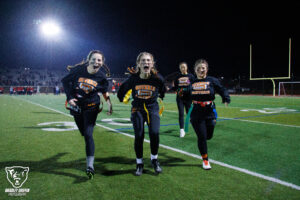By Amelia Jewett ‘27
As autumn begins, so does the anxiously awaited football season. Every year, communities look forward to Friday night lights, games at Gillette Stadium, and cozying up to watch the highlights of Sunday football. Everyone is able to find something about the weekly football routine that appeals to them, whether that be the teams, players, cheerleaders, or snacks. As widespread as the game is today, have you ever wondered where it all began? How it has changed into the cultural phenomenon we know today?
The USA’s professional football today is known as the NFL, or the National Football League. It began back in 1920, with only 10 teams in a league referred to as the American Professional Football Association. It was founded in Canton, Ohio and changed to the National Football League in 1922. Over the next few decades, other organizations would come and go, but the NFL’s biggest rival would be the American Football League. The AFL was founded in 1960 and its success eventually caused the two leagues to merge. The two separate leagues are still differentiated now by the two conferences, each with four divisions. As time went on, the league eventually expanded to 32 teams and created the Super Bowl we know today.
When looking at the game from a modern perspective, we see how technology, social media, rules, and fan base have all had a major impact on the growth of the sport. Technology is a part of our everyday lives, and therefore also part of the activities we watch. Analyzers are able to record stats, predict outcomes, stimulate plays, and detect errors like never before. Outside of the stadium, Fantasy Football takes player stats and predictions to a whole other level by providing minute-to-minute updates and analysis. It’s not only the actual score, but the idea of community on a national level that brings many to support their team. From betting, to buying jerseys, state or region pride, or time with friends and family, football is a way to unite our nation through common ground. You don’t even need to understand the game to understand the warmth of sitting in the living room with friends, on an October Sunday, screaming at the TV.





